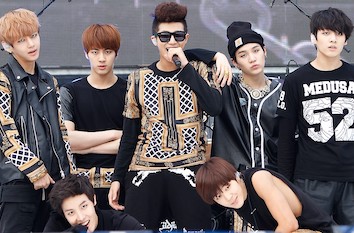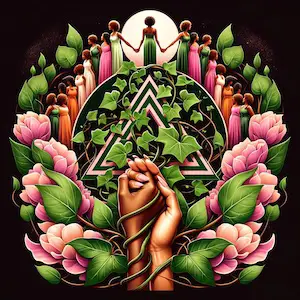Welcome to the vibrant world of BTS chants, a phenomenon that has transcended music and become a unifying force for fans globally. BTS, also known as the Bangtan Boys, is not just a South Korean boy band; they are a cultural phenomenon that has captured the hearts of millions.
In this article, we delve into the fascinating universe of BTS chants, exploring their types, meanings, and the significant role they play in creating an electrifying atmosphere at BTS concerts. These chants are more than just fan cheers; they are a language of unity, a bridge connecting BTS with their fans, and a way for fans to actively participate in the musical experience. From call-and-response chants that create a dialogue between the band and the audience to thematic chants that echo the songs’ messages, each type of chant is a testament to the powerful bond between BTS and the ARMY.

Table of Contents
The Cultural Significance of BTS Chants
The cultural impact of BTS chants transcends mere musical expression, embodying a unique blend of cultural exchange, global unity, and the power of modern fandom.
Origins and Evolution
Initially rooted in the traditional Korean fan culture, where fan chants are a common way to show support, BTS chants have evolved into a global language of admiration and connection. These chants began as simple expressions of support but have grown into intricate and meaningful expressions, often reflecting the deeper messages in BTS’s music.
Impact on Global Music Scene
The global spread of BTS chants signifies a shift in the music industry. Traditionally, fan engagement was limited to buying albums or attending concerts. However, BTS chants have introduced a new level of interaction, where fans are co-creators of the concert experience. This phenomenon has not only elevated the status of K-pop globally but has also influenced how artists from various genres view and interact with their audiences.
Fostering Cross-Cultural Connections
BTS chants are a testament to the band’s diverse and global fanbase. Sung primarily in Korean, with sprinkles of English, these chants have broken language barriers, allowing fans from different cultural backgrounds to unite in a single voice. This unity is symbolic of a larger, more inclusive world where music and passion transcend linguistic and cultural differences.
Emotional Resonance and Expression
The chants often mirror the emotional depth of BTS’s music, allowing fans to express their feelings not just for the music, but for the stories and struggles behind the songs. For many, participating in these chants is a cathartic experience, a way to share joy, sorrow, and hope with a community that understands and empathizes.
Role in Solidifying ARMY’s Identity
For the ARMY, BTS’s official fan club, these chants are more than just a concert ritual; they are a significant part of their identity. Through these chants, fans express their loyalty, solidarity, and unwavering support for BTS, strengthening the bond within the ARMY community. This sense of belonging is vital in today’s digital age, where online communities often serve as important social and emotional support systems.
Educational and Linguistic Influence
Interestingly, the popularity of BTS chants has also sparked an interest in the Korean language and culture worldwide. Fans often learn Korean to better understand the chants and songs, leading to a broader appreciation and understanding of Korean culture. This educational aspect of BTS chants highlights their role in promoting cultural diversity and global understanding.
In conclusion, the cultural significance of BTS chants lies not only in their musicality but also in their ability to bridge gaps, unite diverse groups, and create a global community. They reflect a new era of musical experience where fans are active participants, and their voices, quite literally, become part of the music.
BTS Chant Types
- Call and Response Chants
- These chants involve a direct interaction between BTS and their fans. The band sings a line, and the fans respond with a specific chant. This type of chant creates a lively and interactive atmosphere at concerts, fostering a sense of unity and participation.
- Lyric Echo Chants
- In lyric echo chants, fans repeat certain lyrics after they are sung by the band. These chants are often used in emotionally charged songs, allowing fans to actively participate in the storytelling and emotional expression of the music.
- Rhythmic Chants
- Rhythmic chants focus on maintaining the beat and rhythm of the song. Fans chant in sync with the beat, adding an extra layer of energy and synchronization to the performance. These chants are particularly prominent in upbeat and high-energy songs.
- Thematic Chants
- Thematic chants are designed to reflect the theme or message of the song. These chants often involve key phrases or words that encapsulate the essence of the track. They are not just about participation but also about understanding and sharing the message of the song.
- Encouraging Chants
- These chants are used to show support and encouragement for BTS, especially during significant moments or emotional performances. Phrases like “Fighting!” or “We love you!” are common, providing a moral boost to the band and showcasing the strong bond between BTS and their fans.
- Unity Chants
- Unity chants are all about bringing the fans together as one voice. These chants often occur during songs that hold special meaning for the ARMY, creating a powerful sense of community and shared experience.
- Spontaneous Chants
- Sometimes, fans create spontaneous chants during concerts, responding to the atmosphere or specific moments. These chants are not pre-planned and arise organically, showcasing the creativity and enthusiasm of the ARMY.
- Multilingual Chants
- Given BTS’s global fanbase, chants often incorporate multiple languages. This type of chant celebrates the diversity of the ARMY and the global reach of BTS’s music.
BTS Chant Types
“Fire” (불타오르네)
One of the most iconic BTS chants is from their song “Fire.” The chant “불타오르네” (bultaoreune), meaning “burn it up,” encapsulates the song’s message of facing challenges head-on and embracing one’s true self. The repetition of this phrase by the fans during performances creates a powerful and energetic atmosphere, igniting a sense of confidence and liberation.
“Forever We are Young” (영원히 젊은 소리)
Another popular chant is from “Young Forever,” where the phrase “Forever we are young” is echoed by fans. This chant is a poignant reminder of the fleeting nature of youth and the universal desire to chase dreams against all odds. It resonates particularly with young fans, symbolizing hope, perseverance, and the unbreakable spirit of youth.
“I’m Fine”
In the song “I’m Fine,” the chant “I’m fine” becomes a powerful affirmation of overcoming hardship and finding peace amidst chaos. This chant reflects BTS’s message of self-love and mental health awareness, offering comfort and solidarity to fans struggling with their own personal battles.
“So Show Me, I’ll Show You” (보여줘, 나도 보여줄게)
From the song “Magic Shop,” the chant “So show me, I’ll show you” (보여줘, 나도 보여줄게) is a beautiful exchange between BTS and their fans. It signifies the mutual support and love between the band and the ARMY, highlighting the idea that both the artist and the audience can find solace and strength in each other.
“Love Myself, Love Yourself” (나를 사랑해, 너도 사랑해)
This chant, often heard in BTS’s “Love Yourself” campaign and concerts, is a powerful call for self-love and acceptance. It embodies the core message of BTS’s work: to love oneself as a path to true happiness and fulfillment. This chant has become a mantra for many fans, representing a journey of personal growth and self-discovery.
“2! 3! (Hoping for More Good Days)” (둘! 셋!)
In “2! 3!,” the chant “둘! 셋!” (Two! Three!) signifies the hope for more good days, despite the struggles and pains. This chant is a collective wish for happiness and a reminder that even in the darkest times, there is hope and light to be found.
“MIC Drop” – “Did you see my bag?”
In the song “MIC Drop,” the chant “Did you see my bag?” is a reference to the lyrics that speak of BTS’s achievements and overcoming criticism. This chant embodies the band’s triumph over doubters and haters, serving as a powerful anthem of victory and resilience.
“Spring Day” – “Bogoshipda” (보고싶다)
For “Spring Day,” the chant “Bogoshipda” (보고싶다), meaning “I miss you,” resonates deeply with fans. This chant reflects the song’s theme of longing and the pain of separation, evoking a sense of melancholy and shared longing among the fans.
“Anpanman” – “I’m a new generation Anpanman”
In “Anpanman,” the chant “I’m a new generation Anpanman” is a rallying cry for empowerment and selflessness. The chant aligns with the song’s message about being a hero in one’s own right, despite not being perfect.
“DNA” – “La la la la la”
The “La la la la la” chant in “DNA” captures the song’s vibrant and energetic spirit. This simple yet catchy chant symbolizes the natural, inevitable connection described in the song, emphasizing the theme of fate and deep connections.
“Idol” – “You can’t stop me loving myself”
In the song “Idol,” the chant “You can’t stop me loving myself” is an anthem of self-acceptance and confidence. This powerful statement encapsulates the song’s message of embracing one’s identity and not being swayed by external criticism or standards.
“Butter” – “Smooth like butter”
For their song “Butter,” the catchy chant “Smooth like butter” mirrors the song’s groovy and smooth essence. This chant complements the song’s upbeat and feel-good vibes, encouraging fans to join in the fun and enjoy the moment.
“Dynamite” – “’Cause I, I, I’m in the stars tonight”
In “Dynamite,” the chant “’Cause I, I, I’m in the stars tonight” reflects the song’s uplifting and energetic theme. It’s a celebration of joy and living life to the fullest, resonating with fans as a burst of positivity and happiness.
“Black Swan” – “Do your thang”
The chant “Do your thang” in “Black Swan” aligns with the song’s introspective and artistic nature. It speaks to the experience of facing one’s fears and the passion for art, resonating with fans who relate to the struggle of confronting their inner shadows.
“Save Me” – “Save me, I need your love before I fall, fall”
In “Save Me,” the chant “Save me, I need your love before I fall, fall” echoes the song’s plea for help and support in difficult times. This chant is a call for connection and understanding, highlighting the song’s themes of vulnerability and the need for companionship.
“Blood Sweat & Tears” – “Wonhae manhi manhi” (원해 많이 많이)
This chant from “Blood Sweat & Tears” means “I want you so much,” reflecting the song’s intense themes of desire and temptation. It’s a powerful expression of deep longing and emotional struggle.
Not Today” – “Not not today”
The “Not not today” chant in “Not Today” serves as a battle cry against adversity. It embodies the message of resilience and determination, inspiring fans to keep fighting in difficult times.
“Run” – “Run, run, run”
In “Run,” the chant “Run, run, run” symbolizes the pursuit of dreams and the challenges of youth. It’s a metaphor for the relentless and often challenging journey towards achieving one’s goals.
“Boy With Luv” – “Oh my my my”
The “Oh my my my” chant in “Boy With Luv” captures the song’s cheerful and upbeat vibe. It’s an invitation to join in the celebration of love and happiness.
“Go Go” – “Yolo yolo yolo yo”
“Go Go” features the chant “Yolo yolo yolo yo,” which reflects the song’s carefree and lively spirit. It’s about embracing the moment and enjoying life with a youthful zest.
“ON” – “Bring the pain oh yeah”
In “ON,” the chant “Bring the pain oh yeah” is a powerful declaration of facing and overcoming challenges. It speaks to the theme of enduring and growing through hardships.
“Fake Love” – “Love you so bad”
“Fake Love” includes the chant “Love you so bad,” which resonates with the song’s theme of unrequited love and the pain of deception. It’s an emotional reflection of longing and heartache.
“Life Goes On” – “Like an echo in the forest”
The chant “Like an echo in the forest” in “Life Goes On” symbolizes the song’s message of hope and continuity. It’s a reminder that despite changes and challenges, life moves forward.
“Pied Piper” – “Follow the sound of the pipe”
“Pied Piper” features the chant “Follow the sound of the pipe,” which aligns with the song’s theme of the captivating allure of music. It represents the magnetic pull of BTS’s artistry.
“Dope” – “I got a feel, I got a feel”
In “Dope,” the chant “I got a feel, I got a feel” complements the song’s energetic and self-assured message. It’s a vibrant expression of confidence and enjoying one’s unique path.
BTS Chants FAQ
Who creates the fan chants that BTS A.R.M.Y. use?
Big Hit staff usually share fanchants for specific songs on the fan cafe. They post the lyrics and may highlight words that will be sung with the group or add parentheses and use different colors, usually green or red, to indicate when certain words or lines are to be spoken before or after the lyrics.
Do K-pop fans call BTS members by their last names?
They typically use their nicknames: Kim Namjoon goes by RM, Kim SeokJin is known as Jin, Min Yoongi as Suga, Jung Hoseok as either Jhope or Hobi, Park Jimin as Jimin, Kim Taehyung as V or Tae Tae, and Jeong Jungkook as either JK or Kookie.
BTS Chants Related Posts

Gregorian Christmas Chants

Love Spell Chants

Best Softball Chants for U12

AKA Sorority Chants

Argentina Football Chants

Short Chants and Cheers

Alabama Football Chants

Everything to Know About African Chants

